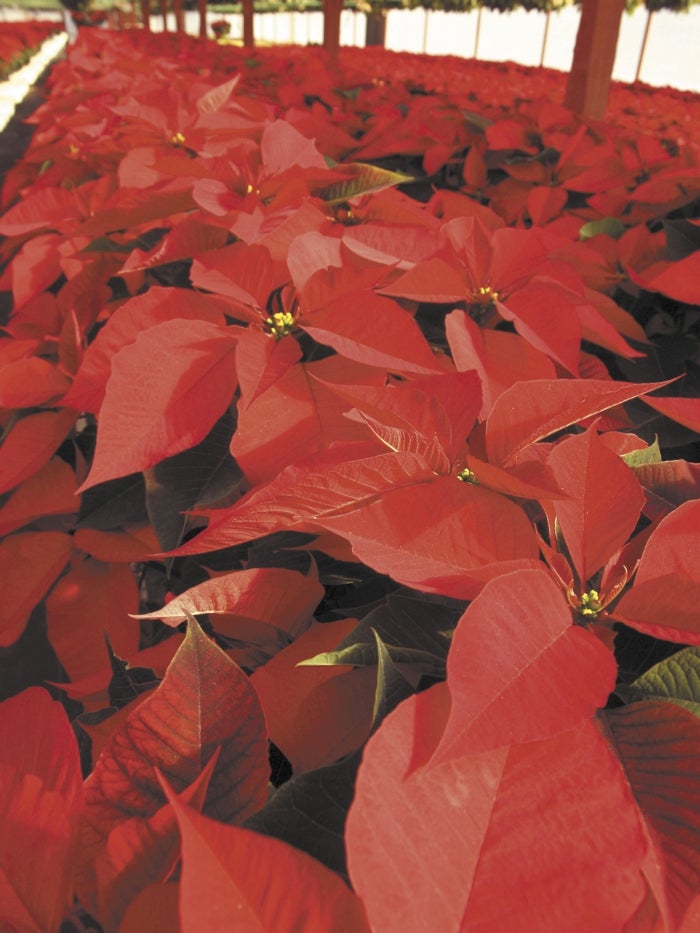H&G Q&A – 120514
Published 12:00 am Friday, December 5, 2014

- The traditional red poinsettia. Photo by Darrell Blackwelder, for the Salisbury Post.
By Darrell Blackwelder
NC Cooperative Extension
The Christmas holidays seem to come faster each year. Many have questions relating to plants and the upcoming holiday season and other landscape questions. Below are a few questions posed to Cooperative Extension over the past few weeks.
Question: My wife wants me to prune our grape vines and use the vines to make a wreath for Christmas decorations in our home. I don’t think this is the right time to prune. Can I prune my vines now and not injure them for the upcoming season?
Answer: Lightly pruning grape vines now will not injure them. However, heavy pruning as a normal cultural practice for grape production is usually recommended for late February and March.
Question: My friend from church gave me some paperwhites narcissus and they are almost in full bloom. I was hoping I could save them and plant them after they have bloomed outdoors in our landscape with our existing bulb plantings?
Answer: No, paperwhites narcissus bulbs are not hardy in our climate and will not survive the winters. They are generally throwaway plants.
Question: When is a good time to fertilize my pansies?
Answer: Now is a good time to fertilize pansies with a water soluble fertilizer. Pansies should be fertilized when the temperatures are consistently below 60 degrees. Avoid fertilization during unseasonably warm temperatures as we have experienced this past week. Excessively warm temperatures cause the plants to stretch and become weak and frail.
Question: Are poinsettias really poisonous? I have heard through the years they are fatal if ingested. Answer: It’s very common misconception about the holiday plant that’s been around since the early 1900s. A small child in Hawaii ate a few leaves of a poinsettia and mysteriously died later and since this incidence, the plant was deemed a poisonous plant. Documented information during this period was sketchy at best however, the myth still persists. Poinsettia bracts and foliage are not toxic; however these plants are ornamentals, intended for ornamental purposes only.
Question: Can I control chickweed in lawns now?
Answer: Yes, chickweed has geminated. Post emergence herbicides containing 2, 4-D and dicamba works well now while the weed is small. Multiple applications 10-14 days apart may be necessary for adequate control.
Darrell Blackwelder is the County Extension Director with horticulture responsibilities with the North Carolina Cooperative Extension Service in Rowan County. Learn more about Cooperative Extension events and activities by calling 704-216-8970 Facebook or online at www.rowanextension.com




